
We all enjoy the refreshing and bubbly sensation of fizzy drinks, but have you ever stopped to think about what’s really going on inside that can of soda or sparkling water? Brace yourself, because in this eye-opening blog post, we’re about to dive deep into the disturbing side effects of fizzy drinks that you probably never knew existed. From the sugar rushes to the not-so-funny tummy aches, we’re here to spill the carbonated beans and help you make informed choices about what you sip.
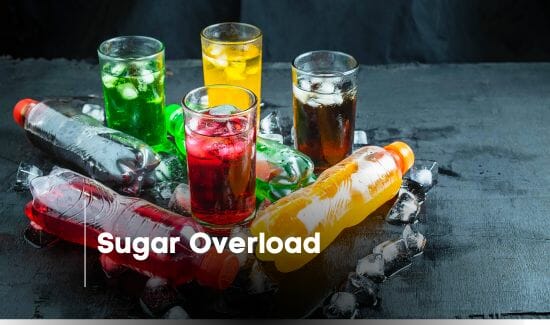
Sugar Overload: How Fizzy Drinks Contribute to Excessive Sugar Consumption
Excessive sugar consumption is a growing concern in today’s society, with fizzy drinks being one of the major contributors. These carbonated beverages, popular among people of all ages, contain sky-high levels of added sugars that can quickly lead to sugar overload. Studies have shown that just one can of soda can contain up to 39 grams of sugar, exceeding the recommended daily intake of sugar for an adult in a single serving.
The problem lies in the fact that many people underestimate the amount of sugar they are consuming through fizzy drinks. The sweetness of these beverages can be addictive, leading individuals to consume more than they realize. This excessive intake of sugar can have detrimental effects on overall health, including an increased risk of obesity, type 2 diabetes, and heart disease. It is important to raise awareness about the hidden sugar content in fizzy drinks and encourage healthier alternatives to reduce the risk of sugar overload.
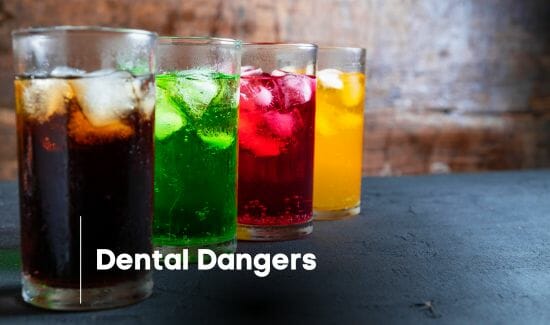
Dental Dangers: The Impact of Fizzy Drinks on Tooth Decay and Cavities
Fizzy drinks have long been a popular choice among beverage enthusiasts, offering a refreshing and bubbly experience. However, the consumption of these carbonated drinks poses a significant risk to dental health. The high sugar content present in fizzy drinks, such as soda and energy drinks, can lead to tooth decay and cavities. The combination of sugars and acidity in these beverages creates an ideal breeding ground for bacteria in the mouth, contributing to the breakdown of tooth enamel.
Tooth decay, commonly known as dental caries, occurs when the protective layer of enamel on our teeth is eroded by the acid produced by harmful bacteria. The sugars present in fizzy drinks act as a fuel for these bacteria, causing them to thrive and produce more acid. Over time, this acid wears away the enamel, resulting in cavities and a weakened tooth structure. Regular consumption of fizzy drinks increases the exposure of teeth to these harmful sugars and acids, amplifying the risk of tooth decay and dental erosion.

Bone Health Concerns: Exploring the Link Between Carbonated Beverages and Weakened Bones
With the rise in carbonated beverage consumption, concerns regarding bone health have emerged. Research studies have explored the potential link between the two, suggesting that excessive intake of fizzy drinks may contribute to weakened bones. Calcium is a vital mineral for maintaining bone density and strength, and the high phosphoric acid content in carbonated beverages may have detrimental effects on calcium absorption. Additionally, the caffeine present in many of these drinks can increase calcium excretion, further compromising bone health. As a result, long-term consumption of fizzy drinks may potentially increase the risk of osteoporosis and other bone-related conditions, especially in individuals who have inadequate calcium intake or already weakened bones.
Furthermore, the negative impact on bone health may not be limited to the direct effects of carbonated beverages. It is important to consider the potential displacement of other nutrient-rich beverages when individuals consume fizzy drinks instead. For example, individuals who choose to regularly consume soda may be consuming less milk or other calcium-rich drinks that actively promote bone health. This lack of adequate calcium intake from alternative sources can further contribute to the weakened bone structure seen in individuals who frequently consume fizzy drinks. Therefore, addressing the link between carbonated beverage consumption and weakened bones requires a holistic approach that takes into account both the direct and indirect effects of these drinks on bone health.

Weight Gain: Understanding the Relationship Between Fizzy Drinks and Obesity
Obesity has become a major concern worldwide, and one contributing factor is the consumption of fizzy drinks. These carbonated beverages are often loaded with sugars and empty calories, leading to weight gain over time. The high levels of added sugars in fizzy drinks can stimulate the release of insulin, a hormone that promotes fat storage. Moreover, these sugary beverages do not provide any nutritional value, leaving individuals feeling hungry and more likely to consume additional calories from other sources.
Studies have shown a clear link between the regular intake of fizzy drinks and an increased risk of obesity. In fact, research has found that individuals who consume these beverages on a daily basis are more likely to have a higher body mass index (BMI) compared to those who consume them infrequently or not at all. Furthermore, the high sugar content in fizzy drinks can lead to an addiction-like response in the brain, making it difficult for individuals to resist consuming these beverages and contributing to long-term weight gain.

Dehydration Dilemmas: The Dehydrating Effects of Carbonated Beverages on the Body
Dehydration is a concerning issue that can occur as a result of consuming carbonated beverages. These fizzy drinks, often enjoyed for their refreshing taste, can actually contribute to an imbalance in the body’s fluid levels. The high sugar and caffeine content in these beverages can act as diuretics, leading to increased urine production and subsequently causing the body to lose more fluid than it takes in. This can leave individuals feeling thirsty and may hinder the body’s ability to maintain optimal hydration levels.
Additionally, the carbonation present in fizzy drinks can further exacerbate the dehydrating effects. The carbon dioxide gas used to create the bubbles in these beverages can stimulate the stomach to produce more acid, potentially causing an increase in urination. As a result, the body loses additional water, leading to a higher risk of dehydration. It is important to be mindful of these effects and ensure that adequate water intake is maintained to counteract the dehydrating impact of carbonated beverages.
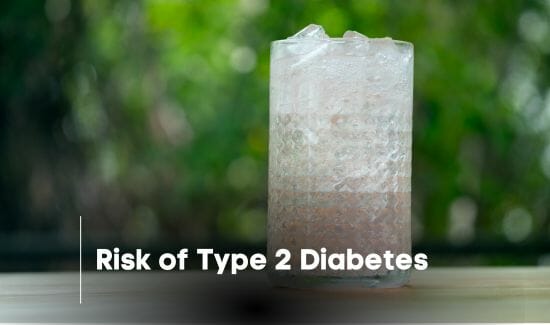
Risk of Type 2 Diabetes: Unveiling the Connection Between Fizzy Drinks and Increased Diabetes Risk
Fizzy drinks have long been a popular choice among consumers craving a refreshing and sugary beverage. However, research over the years has uncovered a concerning link between the consumption of these carbonated drinks and the increased risk of developing type 2 diabetes. The high sugar content in fizzy drinks, combined with their rapid absorption into the bloodstream, can lead to a surge in blood sugar levels. This constant spike in blood glucose puts significant strain on the body’s insulin-producing cells, eventually leading to insulin resistance and the development of type 2 diabetes.
Moreover, the negative impact of fizzy drinks on diabetes risk is not only limited to their high sugar content. Some carbonated beverages contain artificial sweeteners, which are often substituted for sugar to appeal to health-conscious consumers. However, studies have shown that these artificial sweeteners may also contribute to insulin resistance, impaired glucose tolerance, and an increased risk of developing type 2 diabetes. While the exact mechanism behind this connection is still not fully understood, it serves as a stark reminder of the potential harm that fizzy drinks can pose to our metabolic health.
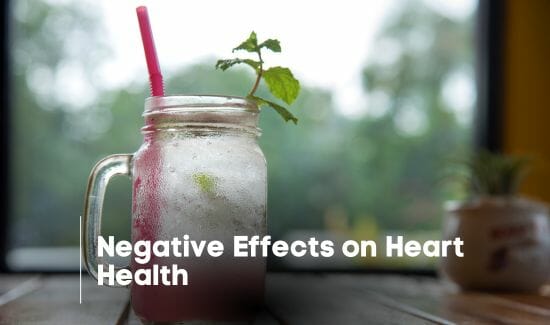
Negative Effects on Heart Health: The Impact of Fizzy Drinks on Cardiovascular Well-being
Sugar-sweetened fizzy drinks have become increasingly popular in recent years, but their excessive consumption can have detrimental effects on heart health. Research has linked the high sugar content in these beverages to an increased risk of obesity, diabetes, and metabolic syndrome, all of which are known risk factors for cardiovascular disease. Excessive sugar intake from fizzy drinks can lead to weight gain and insulin resistance, both of which can contribute to the development of heart problems. Moreover, the fructose present in these drinks has been shown to raise blood pressure levels, further putting a strain on the cardiovascular system.
In addition to the high sugar content, fizzy drinks often contain artificial ingredients and additives that could also impact heart health. For instance, some studies have suggested that certain preservatives and artificial sweeteners found in these beverages may disrupt the balance of gut bacteria, potentially leading to inflammation and atherosclerosis. Furthermore, the high levels of phosphoric acid in fizzy drinks have been associated with an increased risk of developing heart disease. This acid can interfere with the body’s ability to absorb calcium, which is essential for maintaining healthy blood pressure and supporting proper cardiac function. Overall, the consumption of large quantities of fizzy drinks can have serious negative implications for cardiovascular well-being.

Mental Health Matters: Examining the Relationship Between Soda Consumption and Mental Health Issues
Soda consumption has long been associated with numerous health concerns, including mental health issues. Research suggests that there may be a correlation between the consumption of fizzy drinks and an increased risk of mental health problems such as anxiety and depression. While the exact mechanisms behind this relationship are still being explored, it is believed that the high sugar content in soda, as well as the artificial additives and preservatives, may disrupt the delicate balance of chemicals in the brain and contribute to mood disorders.
Furthermore, the addictive nature of soda, particularly those containing caffeine, can also have a negative impact on mental well-being. Many individuals rely on fizzy drinks as a source of energy or as a coping mechanism for stress. However, excessive consumption can lead to a cycle of dependency and withdrawal symptoms, which can exacerbate feelings of anxiety and depression. It is important to note that while soda alone may not be the sole cause of mental health issues, reducing its intake and opting for healthier alternatives can have a positive impact on overall mental well-being.
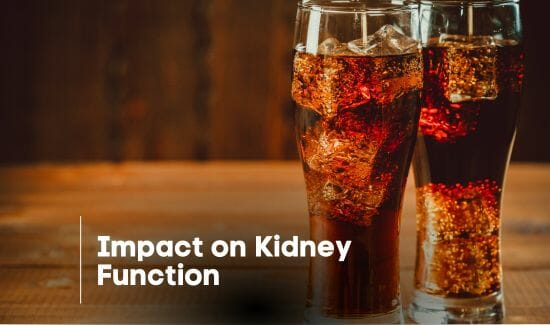
Impact on Kidney Function: Understanding the Effects of Fizzy Drinks on Kidney Health
Carbonated beverages, with their appealing fizz and various flavors, have gained immense popularity in recent years. However, little attention has been paid to their potential impact on kidney health. Recent studies have shed light on the effects of fizzy drinks on kidney function, highlighting the need for increased awareness and understanding of this issue. Excessive consumption of these beverages, laden with artificial sweeteners, high fructose corn syrup, and phosphoric acid, has been linked to a variety of kidney-related problems.
One of the key concerns associated with fizzy drinks is their potential to contribute to the formation of kidney stones. These beverages, particularly those that are dark in color, contain phosphoric acid. When consumed in excess, phosphoric acid can increase the acidity of urine, creating an environment that promotes the formation of kidney stones. Moreover, the high sugar content in fizzy drinks can lead to weight gain and obesity, which further increases the risk of developing kidney stones. As such, reducing the consumption of carbonated beverages can play a crucial role in maintaining optimal kidney health and preventing the formation of these painful, and potentially recurrent, stones.
FAQs – Side Effects of Fizzy Drinks
How do fizzy drinks contribute to excessive sugar consumption?
Fizzy drinks often contain high amounts of sugar, leading to excessive sugar consumption when consumed regularly.
What is the impact of fizzy drinks on tooth decay and cavities?
Fizzy drinks can contribute to tooth decay and cavities due to their high sugar content and acidic nature, which can erode tooth enamel.
Is there a link between carbonated beverages and weakened bones?
Yes, studies suggest that regular consumption of carbonated beverages may weaken bones, possibly due to the phosphoric acid they contain.
How do fizzy drinks affect the stomach and digestive system?
Fizzy drinks can lead to upset stomachs and digestive issues, including bloating, gas, and discomfort due to the carbonation and acidity present in these beverages.
Do carbonated beverages dehydrate the body?
Yes, fizzy drinks can have a dehydrating effect on the body due to their diuretic properties, which may increase urine production and fluid loss.
Is there a relationship between soda consumption and mental health issues?
Studies suggest that there may be a connection between soda consumption and mental health issues, such as depression and anxiety, although further research is needed to establish a direct link.

As a dedicated blogger, I share insights, tips, and knowledge on all things caffeinated and beyond. I firmly believe that a well-brewed cup of coffee or a skillfully crafted cocktail has the power to unite people and ignite engaging conversations.


